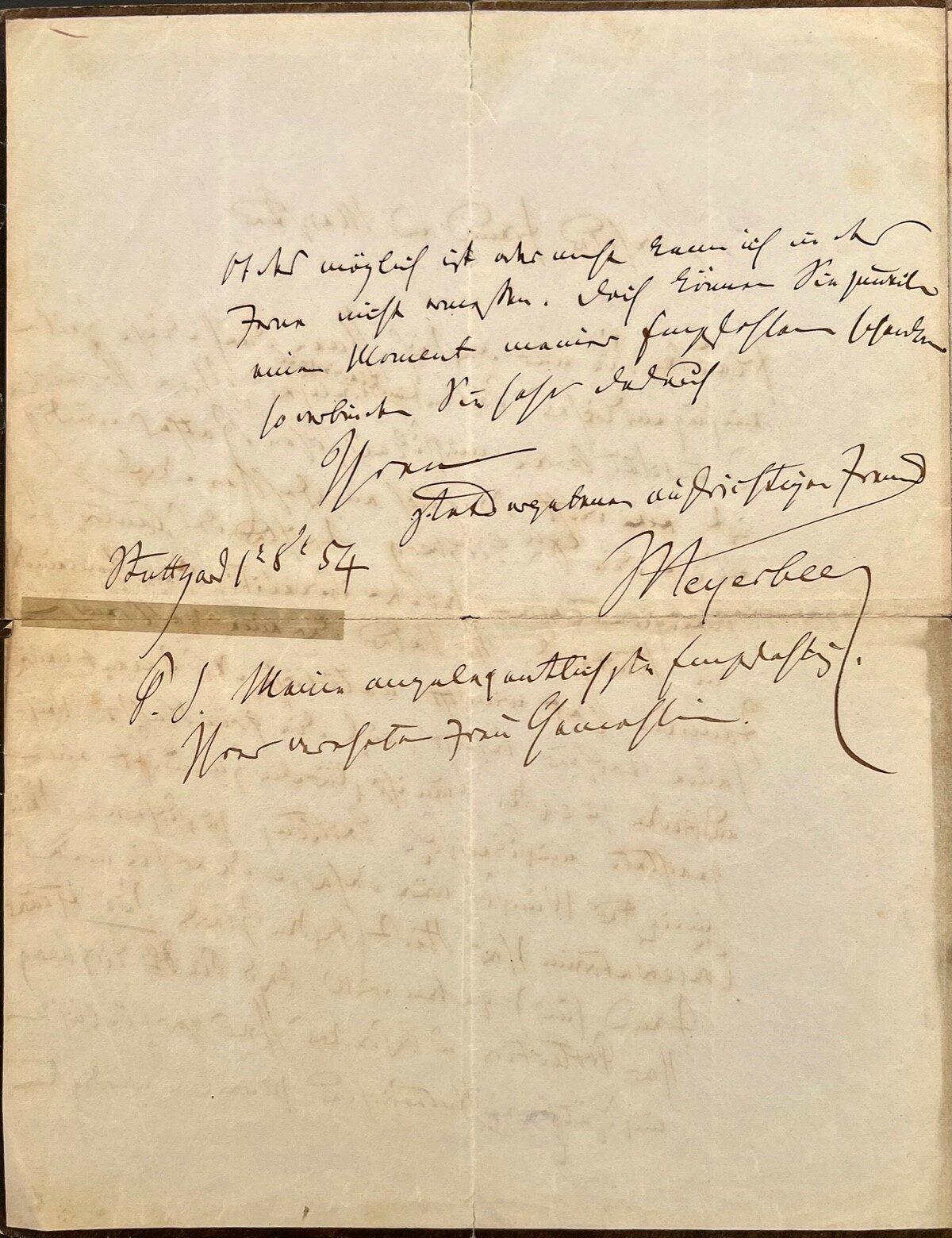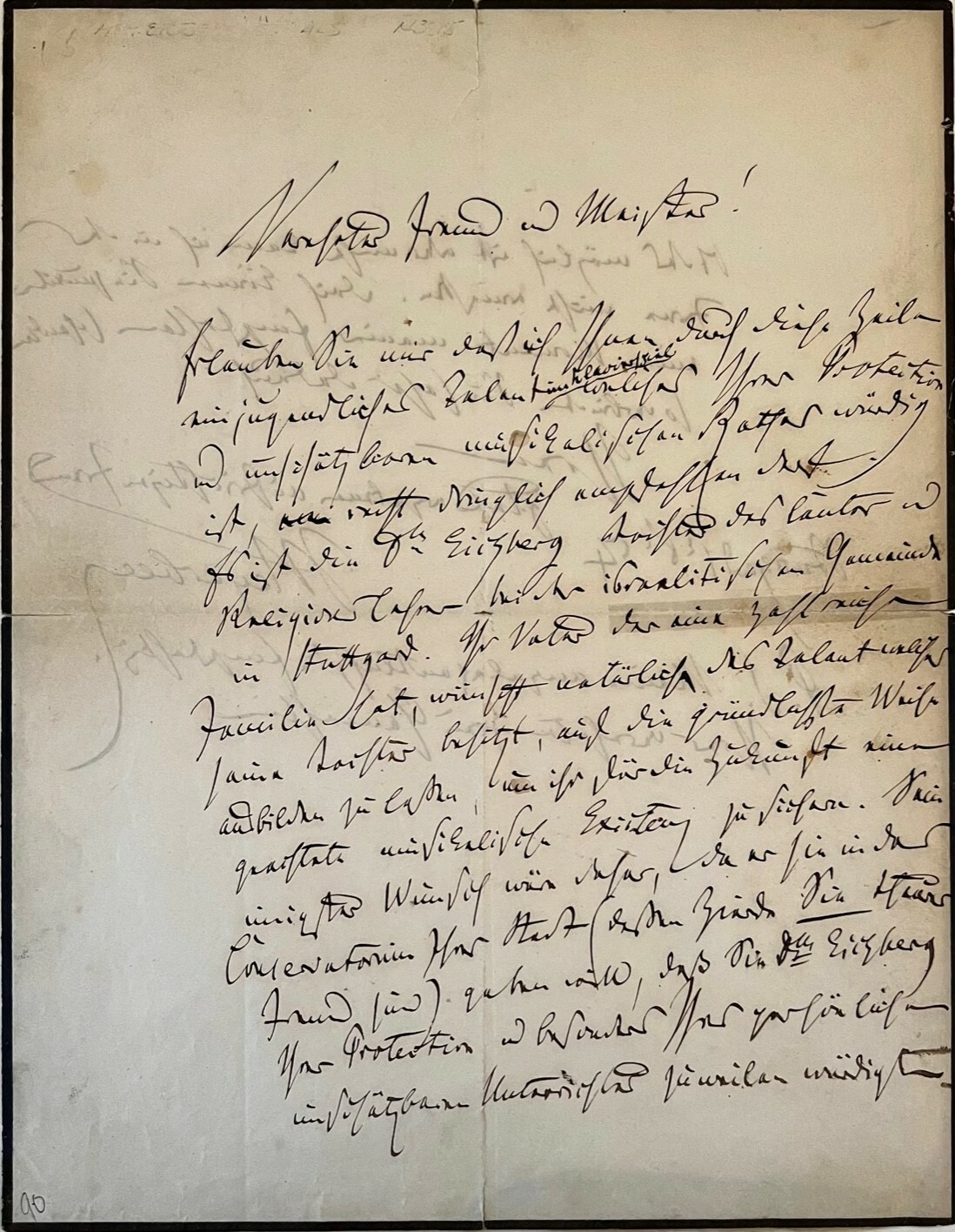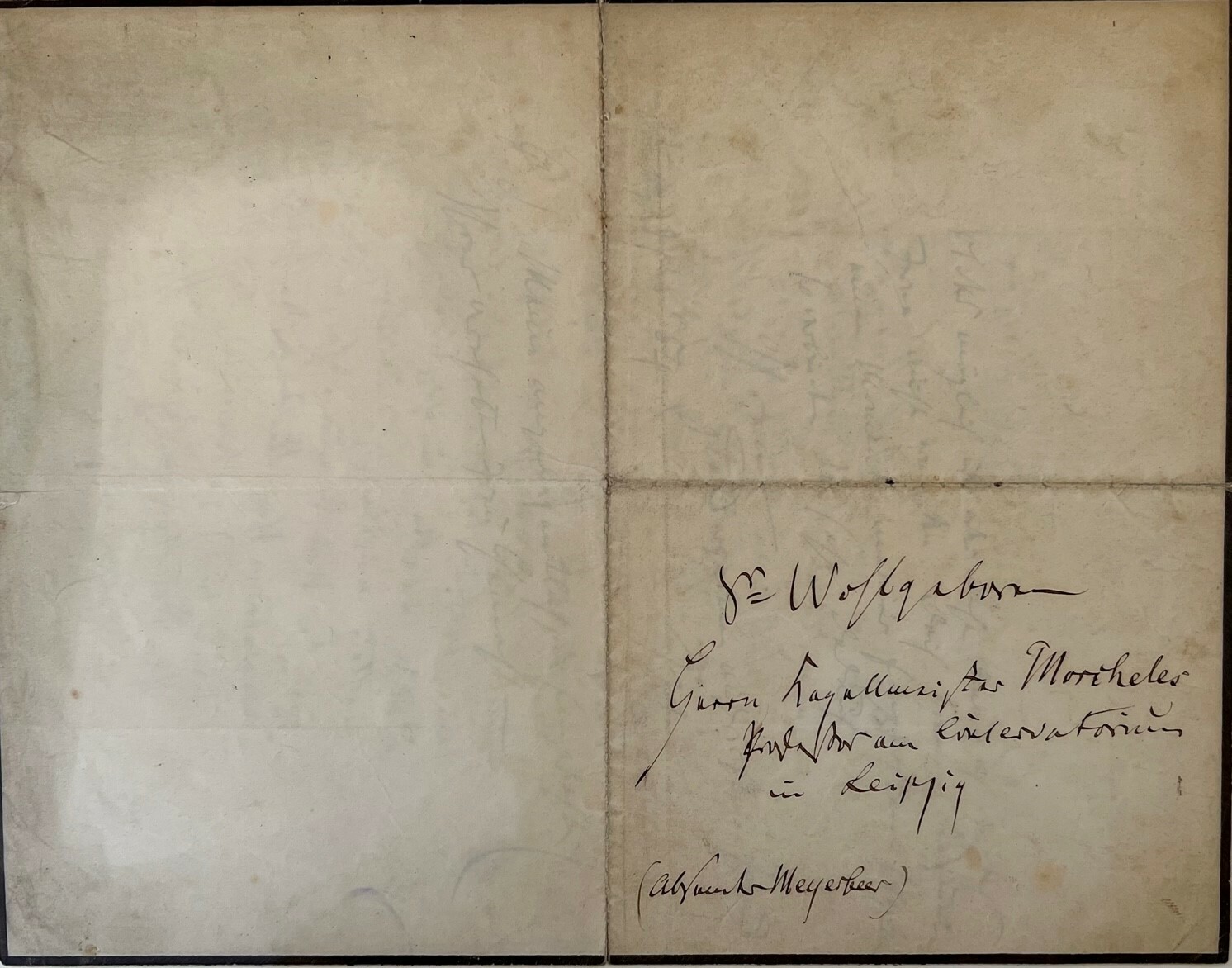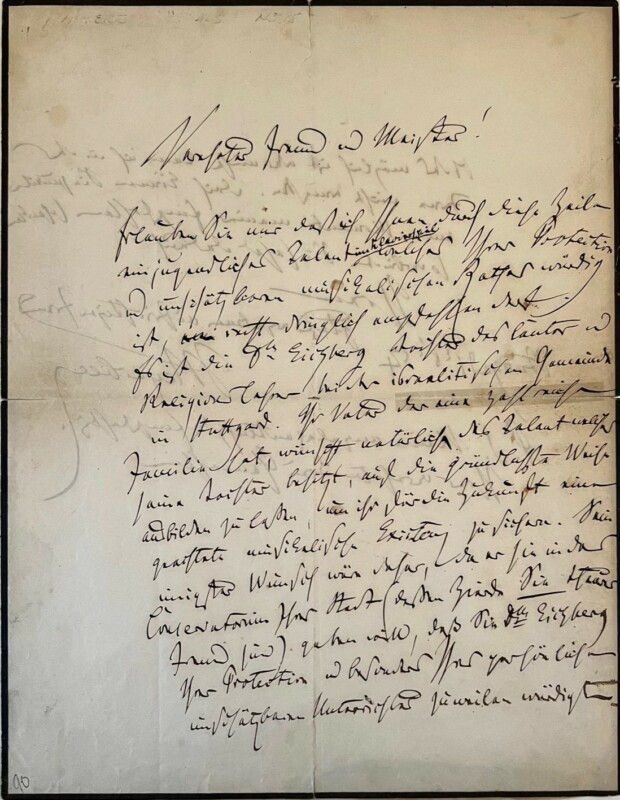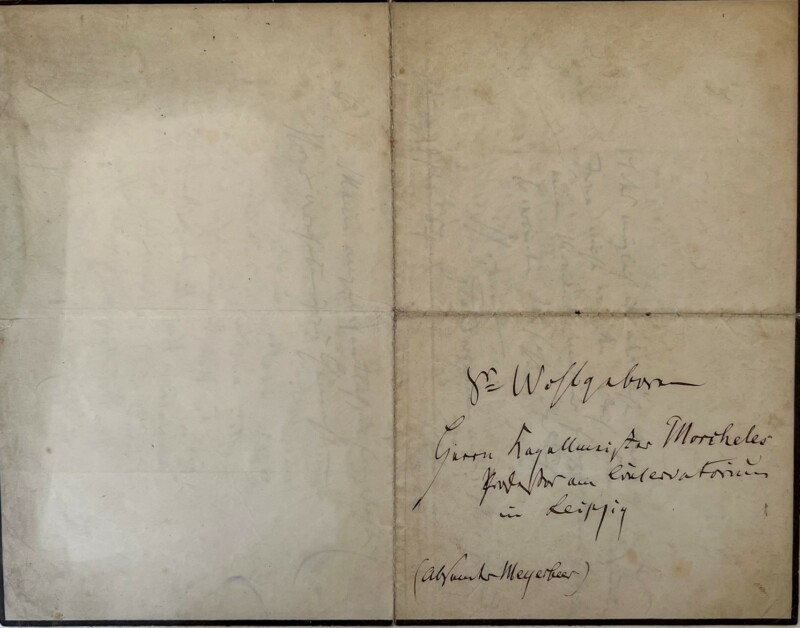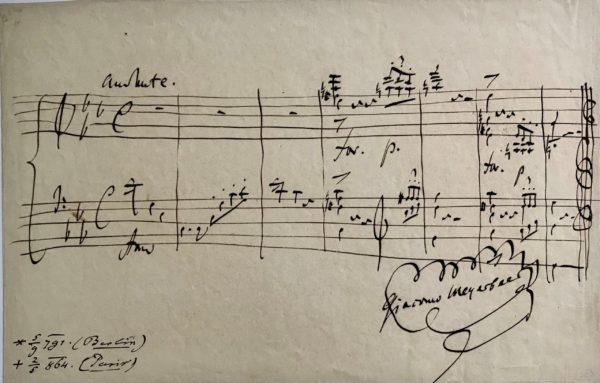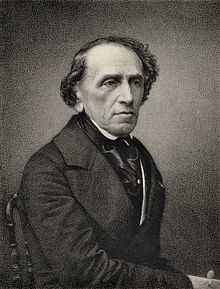
Giacomo Meyerbeer
Meyerbeer came from a wealthy, Jewish family and was the most prominent of his talented brothers. Though he enjoyed a rich musical education, success came only after leaving Germany. “While in Italy Meyerbeer met the foremost artists, won the interest of leading librettists and impresarios and was more successful as an opera composer than he had ever hoped,” (The New Grove Dictionary). Additional achievements came with his entry into the world of French opera, where he pioneered “grand opera” with such works as Les Huguenots and Le prophète. Our letter was written several months after the great success of his L’étoile du nord in Paris.
Moscheles, from a Jewish family in Prague, undertook his musical training in Vienna with Mozart’s erstwhile enemy, Antonio Salieri, where he formed a friendship with Meyerbeer, the pair becoming well known for their spontaneous piano duets. It was also in Vienna that Moscheles met his idol, Ludwig van Beethoven, who, confident in Moscheles’ abilities, entrusted him with scoring the piano reduction of his opera Fidelio. Throughout his career, Moscheles promoted Beethoven’s music and helped secure financial support for the dying composer from the Philharmonic Society. Moscheles also taught Fanny Mendelssohn and her brother Felix, whose genius he recognized and with whom he maintained a close relationship and frequently performed. After Mendelssohn established a music conservatory in Leipzig, he persuaded Moscheles to join its faculty in 1846, where he remained for several decades and where Meyerbeer wrote to him. In addition to Meyerbeer and Mendelssohn, Moscheles maintained close relationships with other Jewish composers and musicians including Anton Rubinstein, Joseph Joachim and Ferdinand Hiller. Our letter sends Meyerbeer’s greetings to Moscheles’ wife Charlotte (née Emden), a cousin of German Romantic poet, Heinrich Heine. Interestingly, two of Moscheles’ granddaughters married prominent men, Frederick Delius and Henry Fielding Dickens, Charles Dickens’ son.
Pauline Eichberg was the daughter of Stuttgart Cantor Moritz Eichberg, who had several musically talented daughters. “When she was thirteen Rubinstein heard her play, and introduced her to Meyerbeer, through whose influence she completed her musical education at the Leipsic Conservatorium, then under the direction of Moscheles. Later she played for a season with Rubinstein at Baden,” (The Jewish Encyclopedia) becoming known for her interpretations of Chopin. In 1859, she began to teach piano in New York and, later, married and settled in Baltimore where she continued to perform.
In 1865, Pauline’s sister Julie, joined her in the United States where they occasionally performed together. After marrying Jacob Rosewald, a violinist at the Peabody Conservatory, Julie became active in the musical and Jewish life of Baltimore, studying with soprano Pauline Viardot-Garcia and others, and earning fame as a prima donna throughout the United States and Europe. In 1884, Julie and her husband settled in San Francisco where she was asked to lead High Holiday services at Temple Emanu-El following the death of the synagogue’s cantor, eventually becoming the first female cantor in the United States, a position she held for nine years.
Written on black-bordered stationery and folded into quarters with a narrow tape repair on a horizontal fold. Some scattered age toning, staining and weakness in the folds, and a tear at the top of the page. With the attached address leaf signed by Meyerbeer and in very good condition.

